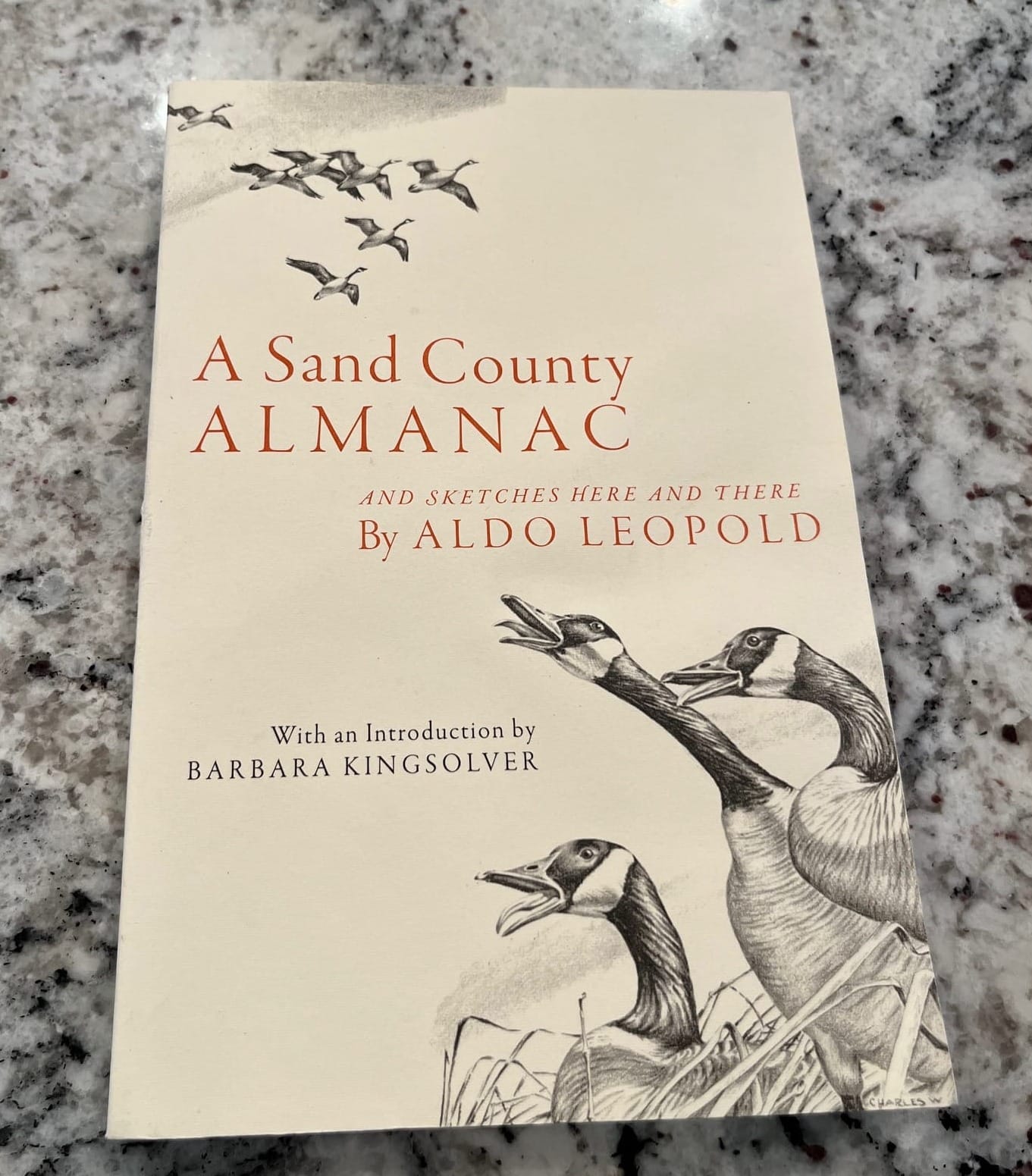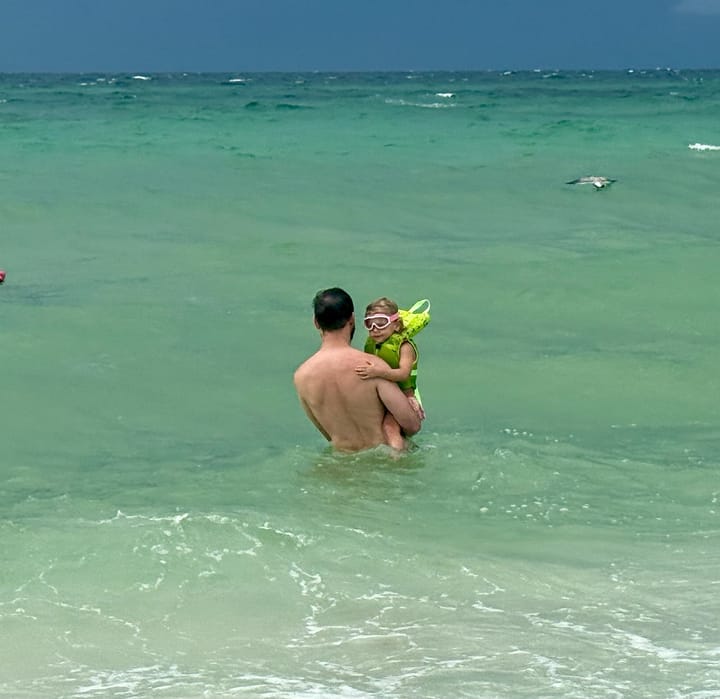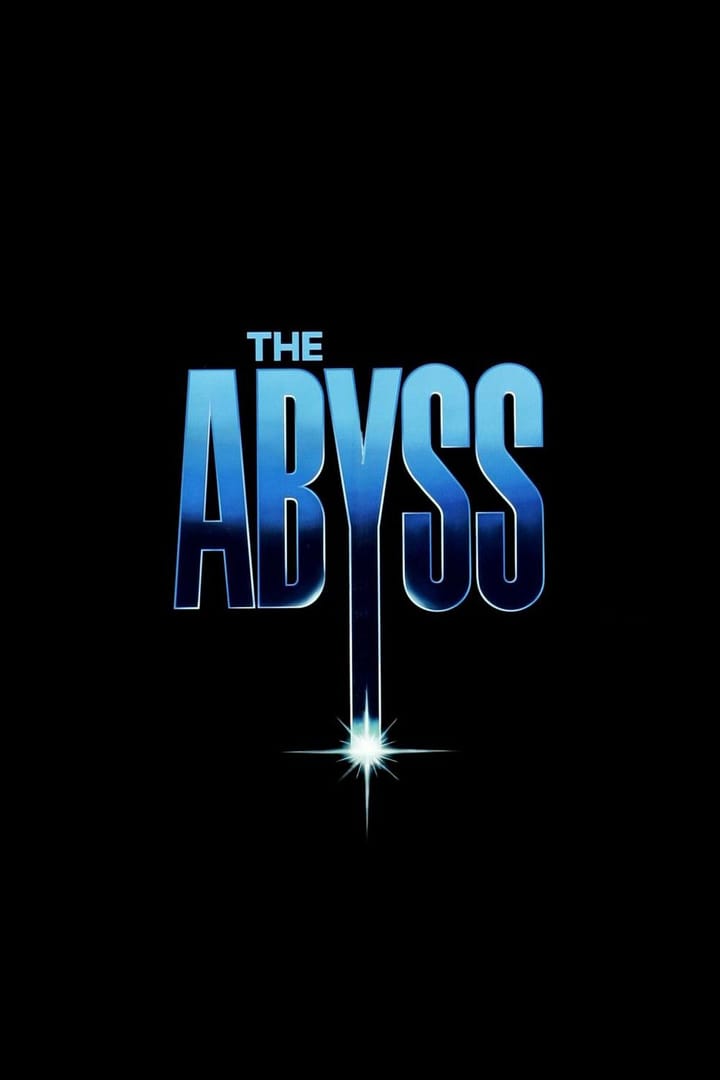Feed the Deer

We have a little tradition in our house that we do around Thanksgiving every year. As the Christmas lights start going up, the Amazon boxes start piling up on the door step, and the Lauren Daigle starts to play in my wife’s car, the pumpkins are also starting to rot. Like most people, we usually buy quite a few pumpkins when they start showing up outside grocery stores and pumpkin patches start popping up around town. And by the end of November the gourds we decorate the porch with are starting to lose all curb appeal. So I pull up our little red fold up wagon and load up these soft and pungent little ghosts of Halloween Past, and I tell the kids, “Let’s go feed the deer.”
Behind our house is a little walking trail. It’s mostly a straight shot downhill, surrounded on either side by some oaks, cedars, cypress, and of course towering pine trees. It leads to a clearing, which branches off to several other walking trails, some back to my neighborhood, some out to a public park not too far away. It’s overgrown in spots, mostly unmaintained throughout, and it’s somewhere on these trails that we’ll drop these pumpkins off in a heap on the ground, to finish their rotting and return from whence they came.
One year my son was a little upset to see the pumpkins go, so we told him that the deer would come and eat them, and he really seemed to love that idea. He would routinely ask to go back to see if the deer were there, or to check on how much they’d eaten.
It wasn’t a total lie either. On the other side of the walking trail is a road, and across that road is another heavily wooded area. Deer used to move through there a lot, you’d see a doe and some fawns earlier in the morning, or on a walk on the trail you might see their tracks near the creek.
When we first moved here, before the kids were born, there were actually more trees around. Now, we didn’t build this house in the country. There’s a school nearby that’s been here for a while and a neighborhood that had been built up over the last 10+ years. Our section was just the most recent addition, and happened to be surrounded by a greenbelt as well as the aforementioned trails.
Still though, there were so many trees. And animals. Many times at night, we’d awaken to the sound of coyotes that sounded like they were in our backyard, much to the consternation of our golden doodles that share the bed with us.
Both my wife and I grew up in small towns, we’re “from the country” more or less. We knew this quarter acre lot wasn’t that, but it kind of felt like it for the moment.
Since that time, the other streets have filled up with houses. The woods have been knocked down in spots for convenience stores, duplexes, a dentist office, and even a fire station. It’s progress. The result of a city that continues to grow beyond the bounds of itself, a gluttonous beast that outgrows it's belt loop and cuts new holes in it. It’s not something I’d ever fight, not only because it would lead to nothing but also because I recognize I am not Laura Ingalls Wilder and did not move out to the woods or the prairies. I do this kind of thing for a living, designing and expanding roads through areas, and as my boss is often fond of saying, "If you want to live in the country, you have to move to the country. Not the edge of town. The country."
It still saddens me a little though, and I don’t think there’s anything wrong with that. I recently read The Sand County Almanac, written by ecologist and conservationist Aldo Leopold. It’s a beautifully written look at the way we live and interact with nature, how we don’t understand it. How we fight it rather than live with it. How we are slowly losing the wilderness that surrounds us in order for someone to make a dollar. Oh, and it was all written in 1949.

I’m not exactly an outdoorsman. Not for a lack of trying (all the hunting trips with my dad growing up never took and I instead opted to spend my Fall Saturday mornings taking in college football), but I do still feel that “call of the wild” in a sense. Enough that I want my kids to love nature, for hunting and fishing not to be foreign concepts to them, for them to feel a bit of longing for the wilderness that is slowly disappearing around them. I don’t know if this whole tradition helps with that. I don’t think it hurts though.
I don’t know that anything really lives in these woods anymore, with all the construction going on, but tradition is tradition. So we load the wagon up, and we make our way down the trail. Little sister sitting with the pumpkins, brother following behind. He chatters about “the forest” and asks how far down we can go before we have to turn back. We reach a spot and I toss the pumpkins out, breaking them up so it is a little easier for them to decompose.
It’s a gorgeous time to be down here. Leaves have changed their colors, eyepopping orange and yellow mixed with the evergreens, and it’s chilly but the sun is out and keeps it pleasant. I stand there and take it in. It’s silly, I know. But this is the closest thing to wilderness you can find in the city, and I also know it’s slipping away quicker than I’d like. What can I do about that though? And is it a little bit hypocritical of me to complain? I think of where my house sits, and how it used to be so wooded and remote that my friends who grew up here threw parties nearby because there was no chance it would get busted. I’m part of the progress too, much as I may hate it.

Maybe in a few years, we’ll be in a position to move out to some land somewhere. Something that qualifies as "the country" to my boss. Maybe we'll be ready to have our own piece of the wild that is safe from developers and capitalism and dental offices.
Maybe not though. Maybe I just need to teach my kids to appreciate nature wherever they can find it. Teach them to love the area they’re in, that it doesn’t have to be a zero sum game. You can grow, create, live, and you can balance it all with trees and birds and beauty.
We prepare to head back to the house, but I stop suddenly, and I call my son over.
“Look”
We crouch down and examine it. Two oblong shapes pushed into the soft mud, not far from where I’ve tossed the pumpkins. A single deer track.
Maybe there’s more wilderness left than I thought.



